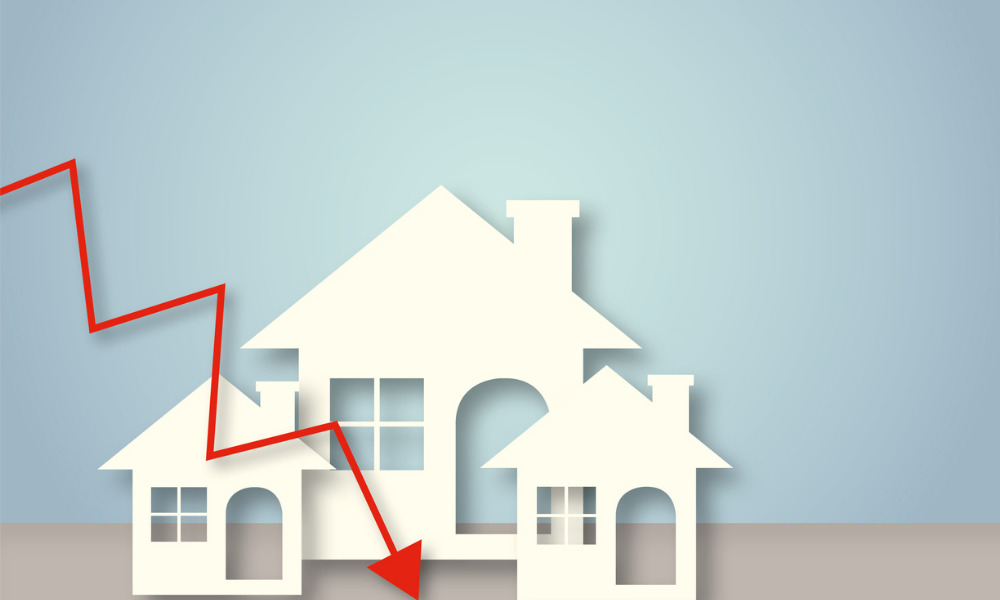Pullback is within expectations, says Bank of Canada

The Bank of Canada has predicted further home price declines after it implemented its eight consecutive rate hike this week.
In the monetary policy report explaining its decision to increase the policy interest rate by 25 basis points to 4.5%, the central bank said it is expecting the 2022 pullback in housing activity to continue “over the near term.”
“House prices are projected to decline further, particularly in markets that saw significant increases during the pandemic,” said the bank’s report.
Home prices have gone down 13% from their peak in February as the Bank of Canada raised interest rates throughout 2022.
“The pullback will continue in the first couple of quarters of this year,” said the Bank of Canada’s senior deputy governor Carolyn Rogers at a press conference held Wednesday morning, noting that this downturn is within expectations after housing activity had reached “extreme highs” when the pandemic brought interest rates at an all-time low.
Rogers also pointed to factors that could lead to a pickup in the housing market later in 2023, particularly with immigration increasing once more, according to the Canadian Press.
“Immigration levels have since bounced back because borders have reopened,” said the Bank of Canada’s latest monetary policy report, which also noted the possibility of holding off on further rate hikes.
“We have raised rates rapidly, and now it’s time to pause and assess whether monetary policy is sufficiently restrictive to bring inflation back to the 2% target,” Bank of Canada governor Tiff Macklem told the press following the rate announcement.
Nick Axford, chief economist at commercial real estate company Avison Young, said this intention to keep the benchmark rate at its current level suggests that “interest rates are now at their peak.”
Rates are likely to be held at their current level for most of 2023, according to Axford, but the central bank should begin to cut rates “very gradually” towards the end of the year.
“This is very much dependent on them feeling sure that inflation is firmly under control,” he added.



